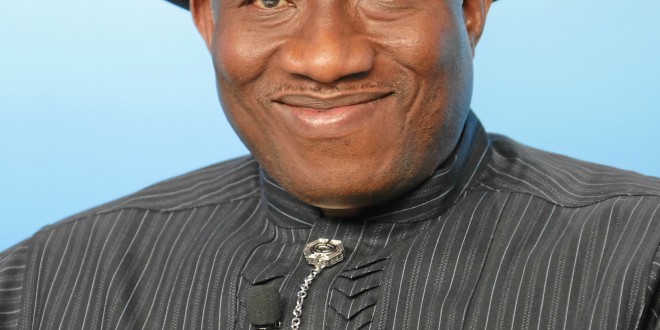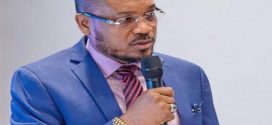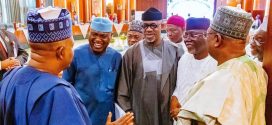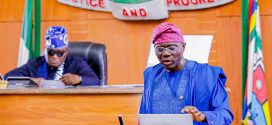————————-
I have been a student of elections for 42 years. I obtained my first degree in History and Politics from Warwick University, Coventry, England in 1975. In my second year at Warwick, I obtained a scholarship to visit the United States to study the circumstances behind the 1973 election of Maynard Jackson as the first African-American Mayor of Atlanta, and of a major Southern metropolis in the United States since the American Civil War.
Since then, I have been fascinated by elections. Unfortunately, Nigeria remained under military rule for an inordinate length of time. The most fascinating election I have ever observed was the first election of Barack Obama as the first African-American president of the United States in 2008. Obama secured the nomination of the Democratic Party against the formidable Hilary Clinton; and he then went on to defeat the Republican nominee, John McCain, in the general election.
Anticlimax
Obama’s 2007/2008 election campaign has since become a textbook-case of outstanding political strategizing in the United States. His superior tactics ensured that his victory quickly became inevitable, even against all the odds. Therefore, some of us were able to call his nomination as Democratic Party candidate and election as president very early; to the discomfiture of doubting Thomases who could not imagine a black U.S. president in their lifetime.
The forthcoming 2015 presidential election in Nigeria is another election that has become easy to predict, but for different reasons. Yes, it is a much ballyhooed election, especially since the emergence of the All Progressives Congress. However, the APC has turned out to be a newspaper political party and nothing more. Its novelty has long died down and a new harsh and dismal political reality now confronts it.
As a result, the 2015 election is not likely to live up to its hype. As a matter of fact, all the evidence now indicates the election will be a cakewalk for the PDP. Goodluck Jonathan will not only be re-elected as president, he will be re-elected by a landslide.
PDP failure
Ordinarily, the forthcoming election should be a problematic one for Goodluck Jonathan. After 15 years, Nigerians are generally fed up with the PDP. 15 years is more than enough time to change drastically the electrical power situation in the country. But this has yet to happen to any appreciable degree.
One year is more than sufficient to make a big impact on the problem of corruption in Nigeria. Again, this has not happened in 15 years. The security situation in the country is now critical and is likely to get much worse before it gets better. 219 kidnapped Chibok schoolgirls are still missing, with only dubious promissory notes offered by the president for their imminent rescue.
For these and other reasons, the 2015 presidential elections should be a difficult one for Goodluck Jonathan. When the Iranians held American diplomats hostage under the regime of Ayatollah Khomeini in 1979, it led to the defeat of incumbent President Jimmy Carter in the United States presidential elections of 1980.
However, in the case of Nigeria, my contention is that the re-election of Jonathan in 2015 is going to be easy. Jonathan will defeat his APC challenger convincingly. He is also likely to obtain the requisite one third of the votes in virtually every state of the federation.
Shambolic opposition
The main reason for this conclusion is that Jonathan is facing a shambolic APC opposition that does not seem to have a clue about what it takes to run an effective national presidential campaign. This explains why, till date, Jonathan is still the only candidate running for the presidency. Although he has yet to declare his candidacy officially, even a three year-old Nigerian child knows he will be the PDP candidate.
However, his APC challenger remains unknown. It is incredible that barely six months to an election where the opposition hopes to unseat a president who has been in office for nearly six years, the APC bigwigs have yet to agree on who will be his challenger. Moreover, the INEC timetable favours the PDP as opposed to the APC. By decreeing that the party primaries for the presidential elections must wait until October 2014, and the campaigns must not start until November, INEC has created a situation where Jonathan has become virtually the only candidate. Just by being president, he is already campaigning and running for re-election.
This means there is now insufficient time to socialize Nigerians about the APC candidate. The only opposition candidates that need no national introduction are Buhari, Atiku and Tinubu. But the candidacies of these men are dead in the water. Buhari and Atiku have contested the presidency in the past and failed woefully. Should they try again, they will fail again.
Tinubu’s candidacy is a nonstarter, given Obasanjo’s recent eight-year representation of the South-West in Aso Rock. This leaves the APC with no candidates of note to field against Jonathan. The only realistic APC candidate at this eleventh hour can only be a national nonentity; and among the non-entities, I include men like Rabiu Kwankwaso of Kano. An APC nonentity cannot prevail against Jonathan and the PDP juggernaut.
Shallow party-structure
The only party that can field a nonentity and still win the presidential election in Nigeria is the PDP. This is because it is the only longstanding national party in Nigeria and, unlike the APC; it has been in power for 15 years. That means the PDP has firm roots nationwide. But the APC only has roots in the South-West, and even there, this is beginning to unravel; as the recent elections in Ondo and Ekiti indicate.
Buhari is very popular in the North, but he is hopeless at building party-structures. Virtually every party Buhari built imploded. Buhari is a one-man party. This is not very useful in an election where Buhari himself is not a viable APC presidential candidate. The APC has excited itself as a result of the defection of some five PDP governors to its ranks. But this is also not very useful because these governors could not defect with their PDP party-structures.
The defector PDP governors have brought a great deal of publicity to the APC. But whatever assets they had to offer has long fizzled out. A testament to this is the ease with which Murtala Nyako was impeached as governor of Adamawa State. With all the noise Nyako was making, it was easy to forget that he had no roots on the ground. It was all smoke and mirrors that did not go beyond newspaper headlines.
No game-plan
Where then is the APC taking the fight to the formidable PDP? Literally nowhere at the moment! The APC peaked too early. As a matter of fact, it is the party now in retreat virtually everywhere. It lost to the PDP in Ondo and Ekiti, part of its South-West stronghold. Nyako of Adamawa has been impeached. Al-Makura of Nasarawa is on the ropes. Other APC governors are under threat of impeachment, but no such threat hangs over the head of any PDP governor.
The defection of the PDP governors to the APC has turned out to be a blessing in initial disguise. From the point of view of political strategy, it would have been better if they had remained in the PDP as APC wolves in PDP clothing. This might have been useful in undermining Jonathan’s candidacy. Indeed, they could have challenged him for the PDP ticket, not with any hope of winning, but just in order to dent his strength and create some havoc within the PDP.
However, by defecting, the rebel PDP governors ushered in peace to the PDP. Simultaneously, they exported their wahala to the APC where they are now at loggerheads with the old APC brigade in bitter internal struggles for supremacy. For a party that has yet to find its feet, this has been disastrous. Indeed, the defections are now going in the other direction, from APC to PDP; as happened recently in Zamfara. Even the defector PDP governors are likely to lose their seats in the near-future, because defection is proscribed in the Constitution and the PDP has taken the matter to court.
So what exactly is the APC game-plan? Nothing much! All we have at the moment is Lai Mohammed coming up incessantly with bombastic broadsides against Goodluck Jonathan and the PDP in the newspapers. If they really believe this is the way to unseat a six-year-old president and dislodge a fifteen-year-old government, then the APC bigwigs need to enroll in NIPSS, Kuru for courses in “Nigerian Elections 101.”
Boko Haram factor
And then there is the Boko Haram insurgency and the albatross of the kidnapped Chibok schoolgirls. The strategy of the terrorists is that every explosion is supposed to discredit the Jonathan administration. In spite of its hatred for the entire Nigerian political establishment, there is no doubt that the Boko Haram would prefer a Northern Muslim president to Southern Christian Goodluck Jonathan.
For this very reason, a vote for APC is now more likely to be construed as a vote of surrender to the insurgency. While Nigerians are very concerned about the security situation in the country, they are even less likely to succumb to its incorrigible purpose. The indiscriminate bombing of innocent Nigerians for the sake of an agenda that is alien to Nigeria cannot but rally people nationwide behind President Goodluck Jonathan.
A few days ago, Vanguard published a Special Report captioned: “Six Months to Elections, Where Are the Presidential Aspirants?” The answer is that Goodluck Jonathan is currently the only presidential candidate in Nigeria. The others are nowhere to be found.
The APC is a useful counterpoise to the PDP in the Nigerian political equation. But it is only likely to pose a strong challenge to the ruling party in 2019, when there will be no incumbent president to contend with, and after it might have sorted out its internal contradictions and developed firm roots nationwide. But as it is today, the APC is not even likely to survive impending defeat in 2015.
 Hottestgistnaija.com
Hottestgistnaija.com






